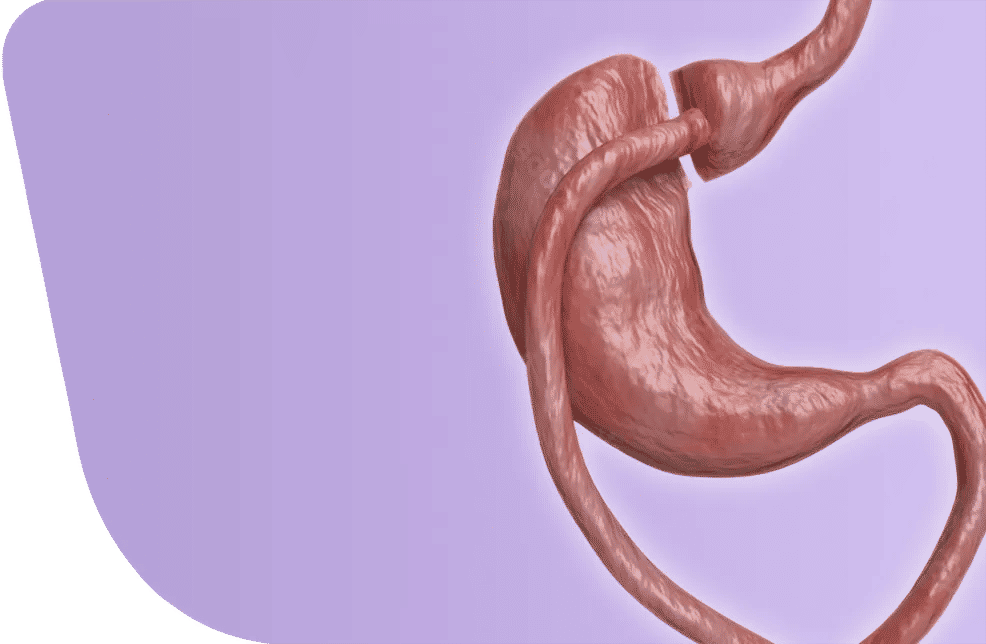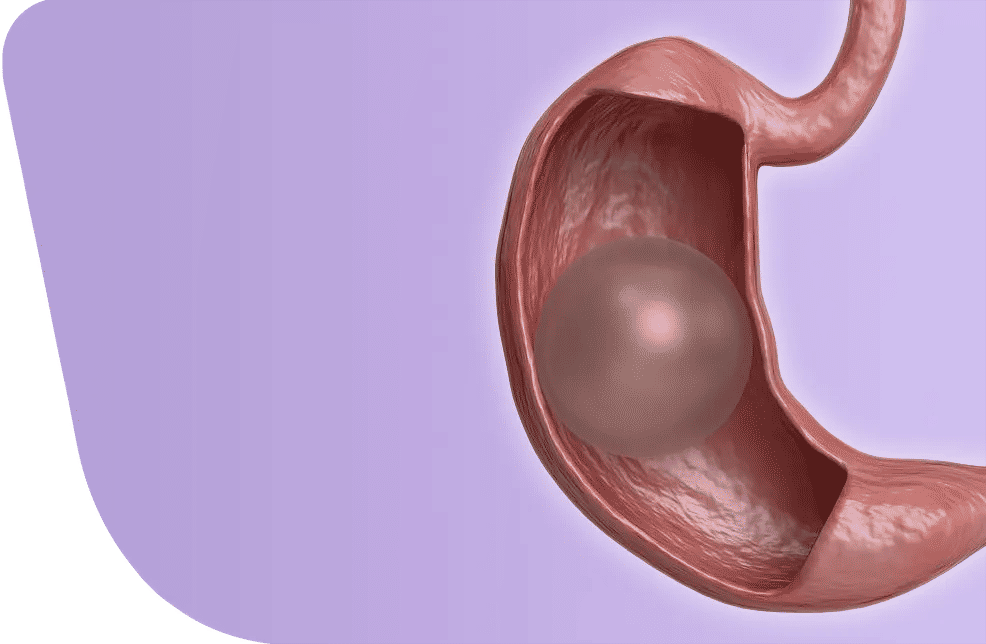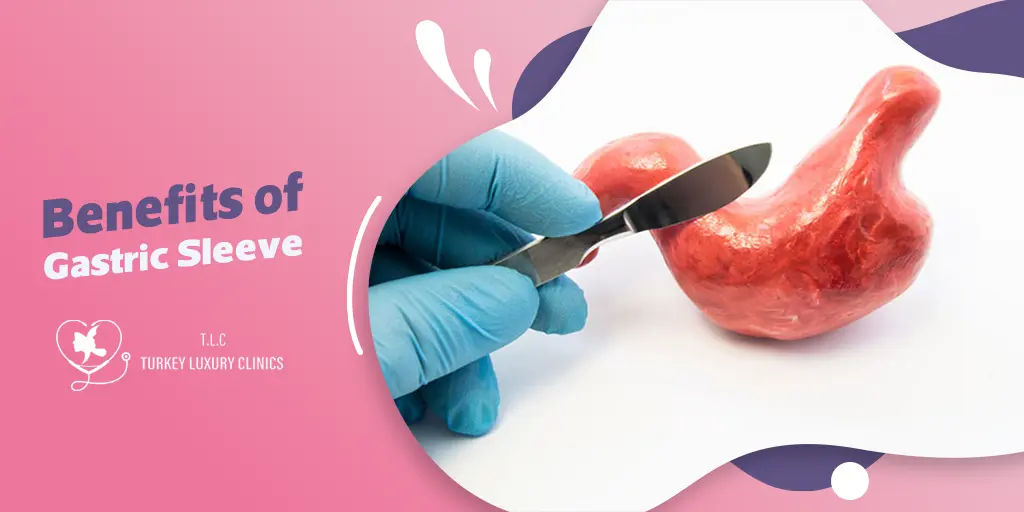- - Gastric Sleeve 10 Years Later: Weight Loss or Regain
- - Health Outcomes with Gastric Sleeve 10 Years Later
- - How to Maintain Weight Loss 10 Years After Gastric Sleeve
- - Long-Term Complications with Gastric Sleeve 10 Years Later
- - What People Say on Reddit About Gastric Sleeve 10 Years Later
- - Key Takeaways: What No One Tells You About Gastric Sleeve
- - Start a Successful Weight Loss Journey with Turkey Luxury Clinics
Gastric sleeve surgery is one of the most popular weight loss procedures. But what does life really look like 10 years after gastric sleeve? Are the benefits truly lasting, and what challenges might come up?
This article covers everything you need to know about gastric sleeve 10 years later, from real outcomes and patient stories to expert tips for long-term health and success.
Thinking about getting a gastric sleeve in Turkey, or need trusted post-op care?
At Turkey Luxury Clinics, we offer expert support every step of the way — from your first consultation to long-term recovery.
Get in touch today to start your journey with confidence.
Gastric Sleeve 10 Years Later: Weight Loss or Regain
A decade after surgery, many patients wonder whether the gastric sleeve truly delivers lasting results.
Most individuals maintain 50% to 60% of their excess weight loss 10 years after gastric sleeve surgery, according to long-term studies.
However, outcomes vary significantly from person to person.
Factors such as diet, physical activity, psychological support, and regular medical follow-ups all influence whether patients maintain
weight loss, or gradually regain it over time!.
Considering gastric sleeve surgery? Discover who qualifies for this effective weight loss procedure
Health Outcomes with Gastric Sleeve 10 Years Later
Gastric sleeve surgery is more than just a weight loss procedure; it can lead to significant, long-term improvements in overall health.
While the physical transformation is often the first noticeable change, the true value of the surgery becomes clearer over time, especially for those who are suffering from chronic health conditions linked to obesity.
Just as importantly, long-term weight loss often contributes to greater self-confidence, improved body image, and an overall better quality of life.
Below is a closer look at the health benefits commonly reported 10 years after gastric sleeve surgery:
Long-Term Impact on Chronic Diseases
Gastric sleeve surgery is often recommended for people dealing with chronic health problems linked to obesity, such as type 2 diabetes, high blood pressure, and heart disease.
It’s especially helpful for those with a high BMI (around 30 or more), a higher risk of health complications, or those who haven’t had success with traditional weight loss methods.
One of the biggest long-term benefits reported 10 years after gastric sleeve surgery is better control — or even remission — of these chronic conditions.
Many patients see lasting improvements in diabetes, hypertension, sleep apnea, and other weight-related issues.
In fact, clinical studies show that keeping the weight off long-term can significantly lower the risk of serious obesity-related diseases.
Discover: can you get the gastric sleeve twice?
Long-Term Impact on Emotional Well-Being and Body Image
The emotional impact of gastric sleeve surgery often improves over time. A decade later, many people feel more confident, motivated, and satisfied with their lives, especially if they’ve kept the weight off and maintained healthy habits.
But it’s not always easy. Some patients still struggle with some emotional issues related to loose skin, body image concerns, or emotional eating that returns over time. This is completely normal and happens.
For those facing these emotional challenges, support can make a big difference.
Talking to a therapist, joining a support group, or simply staying connected with others who understand the journey can help you stay positive, manage setbacks, and feel better about yourself in the long run.
Consulting a bariatric surgeon is your first step toward making an informed and confident decision.
At Turkey Luxury Clinics, we offer a free, honest, and trustworthy consultation with an expert surgeon who will guide you toward the best
choice for a slimmer, healthier life.
How to Maintain Weight Loss 10 Years After Gastric Sleeve
While many people focus on the quick results after gastric sleeve surgery, the real challenge lies in maintaining those results — especially 5 or even 10 years later. Long-term weight management is where the surgery's true value is tested.
Success doesn’t come from surgery alone. It comes from facing challenges head-on and making a long-term commitment to your health.
Below are the most common challenges patients face 10 years after gastric sleeve surgery, along with practical tips to help you stay on track:
Challenges with Gastric Sleeve 10 Years Later
1. Preventing weight regain
Over time, the stomach may stretch slightly, appetite can return, and portion sizes may gradually increase. Without consistent healthy habits, some patients experience partial weight regain — even years after surgery.
2. Staying consistent with healthy habits
Over the years, it’s easy for routines to fade. Life gets busy, motivation drops, or old habits start to return. Some patients find themselves skipping workouts or eating out more often than planned.
3. Dealing with emotional eating or boredom eating
Stress, emotional ups and downs, or even boredom can lead to eating when you’re not physically hungry — even years after surgery. This is especially true if food was once a coping mechanism.
4. Motivation and lifestyle burnout
Ten years is a long time to stick to any routine. Some patients feel “burned out” on tracking food, cooking healthy meals, or keeping up with exercise — especially if results have plateaued.
5. Social pressure and eating out
As time passes, you may feel more comfortable socially — but that can also mean more meals out, holidays, and events where it’s easy to overeat or lose structure.
How to Overcome Challenges 10 Years After Gastric Sleeve?
Lifestyle Changes with Gastric Sleeve 10 Years Later
One of the often-overlooked benefits of gastric sleeve surgery is that it naturally encourages people to adopt healthier lifestyle habits — not just in the short term, but for life.
To maintain weight loss and avoid regain, long-term changes become part of your daily rhythm.
In the beginning, these routines may feel strict or unfamiliar.
But 10 years later, your lifestyle shouldn’t feel like a diet plan — it should feel like your new normal. Small, consistent habits are what keep results going. Here’s what that looks like in real life:
- Best eating Practice after gastric sleeve
Keep meals structured: Avoid grazing all day. Stick to regular mealtimes and prioritize protein in each one.
- Exercise and activities
Exercises: Move regularly, not perfectly: Daily walks, stretching, or light workouts go a long way, it doesn’t have to be intense to be effective.
- Sleeping patterns
Prioritize sleep: Getting 7–8 hours of quality sleep helps regulate appetite, improve mood, and boost energy.
- Stress and emotions Manage
stress proactively: Chronic stress can trigger emotional eating. Try simple tools like walking, journaling, or breathing exercises.
- Healthy Social engagement:
Stay connected: Whether it’s a support group, an online community, or checking in with your dietitian, staying accountable makes a big difference.
What to Eat: Long-Term Nutrition Tips
Ten years after gastric sleeve surgery, your relationship with food has likely changed — and that’s a good thing. By now, you’ve probably realized that food isn’t just for comfort or enjoyment.
It’s fuel for your body, a tool for healing, and the key to staying full, strong, and energized. Here’s what to focus on to gain these benefits.
- Protein is still key: Start each meal with protein (chicken, fish, eggs, dairy, legumes). It helps maintain muscle and keeps you full.
- Choose nutrient-rich foods: Prioritize vegetables, whole grains, and healthy fats like olive oil, avocado, and nuts.
- Minimize processed foods: They’re easy to overeat and offer little value. Stick to whole ingredients as much as possible.
- Watch your portions: Your stomach can handle more food now — but your needs haven’t changed much. Eat slowly and stop when full.
- Stay hydrated: Water helps digestion and reduces hunger cues. Limit sugary drinks and alcohol.
And remember — eating healthy shouldn’t feel like a punishment. Find cooking styles you enjoy, experiment with herbs and spices, and make your meals both nourishing and satisfying. When healthy food tastes good, you’re more likely to stick with it long-term.
How to Keep Your Strength with Gastric Sleeve 10 Years Later
Even if you feel fine, staying strong and healthy after gastric sleeve surgery means keeping an eye on your nutrient levels. Some deficiencies don’t show obvious symptoms right away, but over time, they can affect your energy, focus, and overall well-being. Here’s how to stay on top of it:
- Get annual blood work: Have your B12, vitamin D, calcium, and iron levels checked at least once a year.
- Don’t skip supplements: Bariatric-specific vitamins are still essential — even 10+ years after surgery.
- Watch for signs of deficiency: Fatigue, dizziness, hair thinning, brittle nails, or mood swings could signal a nutrient imbalance.
- Adjust based on results: Your supplement needs may change over time. Always follow up with your doctor or bariatric care team if something feels off.
- Support with food and vitamins: Supplements and a balanced diet work hand in hand to maintain strong bones, healthy muscles, and steady energy.
Long-Term Complications with Gastric Sleeve 10 Years Later
While gastric sleeve surgery offers lasting weight loss and major health improvements, it’s important to understand that some complications can develop — or return — even a decade later.
These aren’t guaranteed, but being aware of them helps you take preventive steps and catch any issues early.
Here are the most common long-term complications 10 years after gastric sleeve surgery:
1. Nutritional deficiencies
Even 10 years later, vitamin and mineral deficiencies are common — especially in B12, iron, calcium, and vitamin D.
These can cause fatigue, weakness, hair loss, and other symptoms if not addressed through supplements and annual blood work.
2. GERD or acid reflux
Some patients experience new or worsening acid reflux years after surgery. This can cause heartburn, discomfort, and sometimes require medication or further treatment.
3. Loose skin
Significant and sustained weight loss often leads to excess skin. For some, this affects confidence, comfort, or hygiene, and in some cases, leads to considering skin removal surgery.
4. Gallstones or digestive issues
Rapid or long-term weight loss can increase the risk of gallstones. Others may experience changes in digestion, like food intolerances or occasional bloating.
5. The need for Gastric Sleeve Revision
Gastric sleeve revision refers to a second procedure done when the original sleeve no longer provides the desired results.
Over time, the stomach may stretch, or complications like acid reflux can develop or worsen.
In such cases, a revision — or even conversion to another bariatric surgery like gastric bypass — may be recommended to restore results and relieve symptoms.
Despite all these complications, the benefits of gastric sleeve surgery far outweigh the risks for most patients, but long-term success depends heavily on compliance with lifestyle changes.
What People Say on Reddit About Gastric Sleeve 10 Years Later
Reading patients' reviews on Reddit offer powerful insights into the long-term impact of gastric sleeve surgery.
Many people on Reddit say they regained some weight years after surgery. But they also explain that this doesn’t mean failure. With focus and effort, it’s possible to get back on track.
“I lost over 100 lbs. Over time, I gained back some of it and felt frustrated. But I changed my habits again, more protein, less carbs, more movement — and started losing again.”
Even after losing weight, many people still struggle with emotional eating, stress, or low motivation. “It’s still a mental journey, even after a decade. I had to deal with emotional eating, and support groups really helped me stay focused.”
Some people say they developed acid reflux or heartburn years after the sleeve. “The sleeve helped me a lot, but I later developed serious acid reflux. If I had known, I might have chosen a bypass instead.”
Key Takeaways: What No One Tells You About Gastric Sleeve
- Weight regain can happen, and often does. Many people report regaining 20 to 50 pounds over the years, especially if old habits return.
- Emotional eating doesn’t just disappear. If food was once a coping mechanism, that pattern can come back unless addressed with mental health support.
- Acid reflux may become a bigger issue. Some long-term patients develop or experience worsening GERD, especially if the stomach has stretched.
- You may not always feel full. Hunger signals may change again several years later, and portion control needs to be relearned.
- It’s a tool, not a cure. Long-term success depends on continued healthy habits, regular follow-up, and realistic expectations.
Start a Successful Weight Loss Journey with Turkey Luxury Clinics
Whether you're preparing for surgery or navigating life 10 years after, Turkey Luxury Clinics is here to help.
Get trusted guidance, long-term care, and real answers — exactly when you need them.
Reach out today. Read more about cost of gastric sleeve in Turkey.














.webp)
.webp)
.webp)
.webp)

